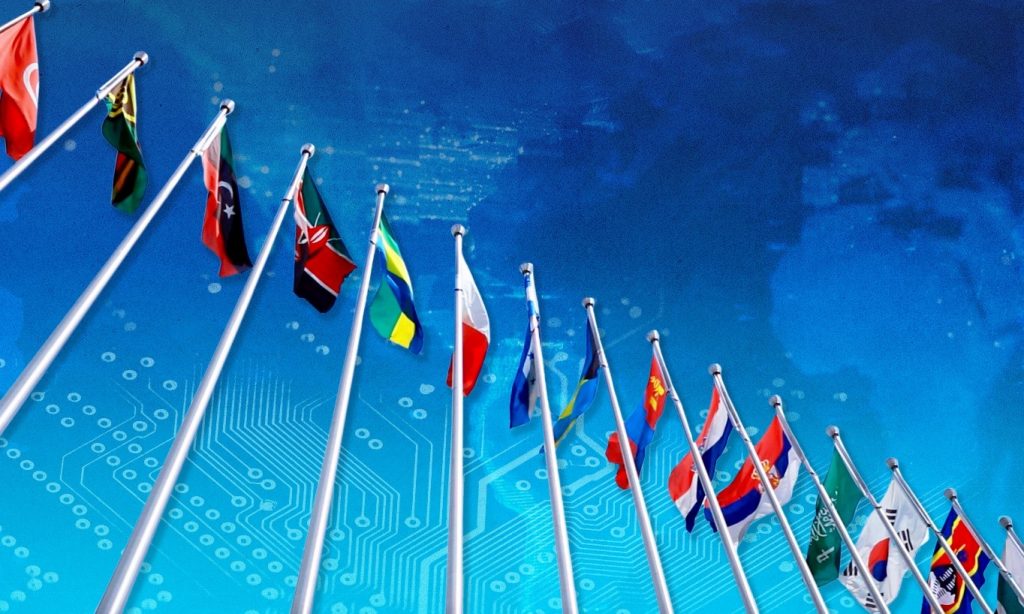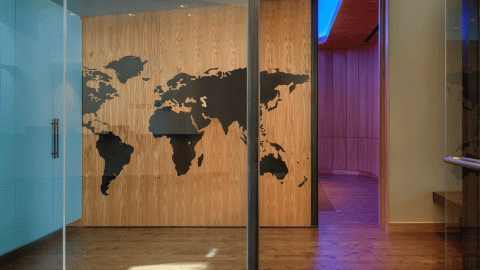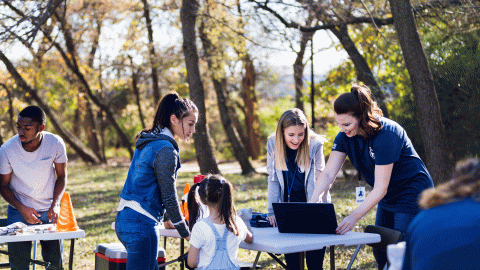Climate change, the digital divide and public health: What was discussed at UNGA76
In 2020, Microsoft established a United Nations Affairs office in New York to work alongside the UN on some of the world’s biggest challenges: climate change, humanitarian needs and the digital divide.
At a virtual panel during the 76th UN General Assembly (UNGA) in September, John Frank, Microsoft’s Vice President of UN Affairs, explained why the office matters more than ever.
“Multilateralism matters to global business,” he said.
“Businesses around the world are deeply invested in the success of the United Nations and its missions. We want to help the UN be more successful, more impactful. And that’s good for us. That’s good for the world.”
The panel was one of several at UNGA in which Microsoft leaders took part alongside voices from both the public and private sectors. The UN Affairs office believes that such gatherings will help to achieve shared global goals in a responsible and equitable way.
On the agenda? Creating global access to the internet, fostering digital skills and working toward greater inclusivity and a brighter economic future. Here’s a look at what was discussed.
Should broadband internet access be free for all?
Half of the world’s population – 3.7 billion people – are not online, according to the International Telecommunication Union (ITU), a United Nations agency.
The need for a collaborative approach to improving outcomes through digital access was underscored by Vickie Robinson, General Manager of Microsoft’s Airband initiative, during the program Digital equity: “Should internet be free for everyone?”, on Sept. 15. It was hosted in partnership with Microsoft and GZERO Media, an organization focused on the impact of technology on society and government policy.
Airband, Microsoft’s effort to advance digital equality, has brought affordable broadband access to millions of people in rural and underserved areas of the United States, as well as in countries like India, Ghana and Kenya.
“I think that we all benefit from a more connected world,” said Robinson. “And as a result, we all bear some level of responsibility [in] getting us to that place. We do need all hands on deck.”
Making new technology equitable for all
Another theme was the need for global alignment around digital transformation, or the roll-out of new technologies – for both practical implementation and around ethical concerns.
One way to reach that alignment is through multilateral partnerships from both the private and public sectors. An example of this in action is the Learning Passport program – a joint initiative from Microsoft and UNICEF that has given disadvantaged children access to digital learning platforms and kept them learning throughout the Covid-19 pandemic.
“We are in an incredibly transformative period through information technology and data science,” observed John Frank during the UN Innovation Room episode, “Harnessing digital and data for a Decade of Action” on Sept. 21. The UN Innovation Room series, comprising four debates on the adoption of new tools and new modes of collaboration, was hosted by Microsoft Tech for Social Impact, which focuses on digital transformation for nonprofits.
“Everybody has an interest in how this transformation takes place. And everybody has an interest in making sure that their social values are a framework for the development of their society.”
Data sharing also has an incredibly important role to play: According to the World Health Organization (WHO), “aggregated and actionable data” will be critical for the effective management of public health.
The World Health Data Hub, a partnership between the WHO and Microsoft, will house a global information center for disease surveillance and knowledge sharing.
Covid-19 recovery: Is the world really building back better?
Health equality was a theme of a second GZERO Media panel, “Unfinished business: Is the world really building back better?” on Sept. 22. Panelists discussed vaccinations and Covid-19.
“I think there is a lot of opportunity to move faster,” said Microsoft President and Vice Chair Brad Smith. “We should be pushing ourselves and we should be aiming higher.”
In a poll conducted online, 66% of respondents said they did not believe that the world was “building back better” from the pandemic.
Panel speakers suggested that this result demonstrated the need to rebuild trust in, and between, national governments – calling on both the public and the private sector to help combat vaccine hesitancy, climate change and economic inequality.
“If you ask about the state of trust between nations in the world, if you ask about the state of economic development, and whether we’re seeing the divides of the world exacerbated or closed, you know, there’s a lot of cause for concern,” said Smith.
“The only way to build back better is to take the new tools and technologies that are going to be fundamental to the future, and ensure that they are available and accessible and usable by people who may be of lesser means or in lower-income countries or otherwise more vulnerable.”
For more on Microsoft’s work with the UN, visit Microsoft at the United Nations. And follow @MSFTIssues on Twitter.








